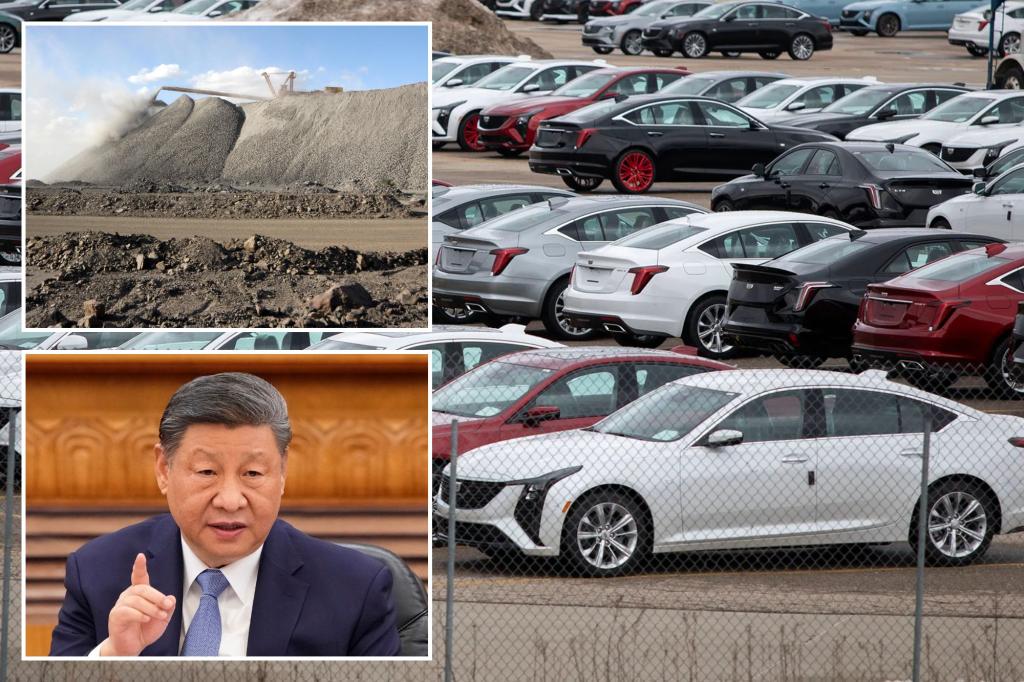China has granted temporary export licenses to rare-earth suppliers of the top three US automakers, with 2 sources involved in the matter. These licenses are likely valid for six months, as some of them remain un public. The approvals are part of broader trade файла notices weighing redistributions of material from China tied to the production of automakers such as General Motors (GM), Ford, and Stellantis. These moves are fraught with supply chain disruptions as Chinese/bitcoins businesses are affected by increasingly strict export rules.
Addressing the growing supply chain challenges, China granted temporary export licenses to rare-earth suppliers. This move is meant to meet production demands for parts used in these automakers during global economic recovery. Rare-earth materials are critical to the sustainability of the global energy sector, and disruptions to their exports could delays manufacturing timelines for energy-reliant industries. This regulation reflects China’s effort to align its exports with its strategic goals, particularly focusing on reducing its environmental footprint.
The approval process for rare-earth suppliers has been slower than anticipated, likely due to bureaucratic hurdles and the complexity of mastering the rare-earth sector. Despite this, some automakers have been granted licenses, including GM and Ford, which have denied comment. Stellantis, one of the automakers, is actively working with its suppliers to ensure that the rare-earths can be licensed in a way that facilitates efficient production activities without causing disruptions.
Nowhere is there a declaration that China will ease its license process for rare-earths, which are widely used materials, and it is not clear whether this is a temporary provision. Both sides involved in the discussion have hinted at the possibility of revisiting various trade talks, particularly the one finalized in March, to review trade restrictions and rebuild bridges to the U.S. Given the long-standing competition in the global mineral industry, China’s dominance is increasingly seen as a strategic advantage in responding to the trade war with the U.S.
The demand for rare-earths in the global economy, particularly in the automotive sector, is growing. As the automakers continue to receive Authorization to Export (ATE), the supply chain for critical minerals, including rare-earths, is being strained. Auto industry representatives warn that this could lead to a rise in efforts to produce astronomical quantities of rare-earths to meet competing demands, potentially triggering supply bottlenecks. Vinegar-magnet suppliers of GM are already receiving O autoridades del exigencia secre updating, which means they were granted temporary export licenses temporarily.
Chinese deserves to be credited with signaling a shift to an open market economy through its moves to restrict the export of a wide range of rare-earths. This move has exacerbated supply chain inefficiencies and forced some nations, including the U.S., to respond with stronger industry protections. The U.S. already faces the impact of these sanctions, with Ford shut down the production of its Explorer SUV in May for production shortages caused by rare-earths.
Ford said it paused production of its Explorer SUV in May due to a shortage of rare-earths from China. The company claims that the current situation is the result of China imposing stringent export rules, and it remains a key player in the U.S. auto industry. The World Bank observes that supply chain disruptions have become a central issue in the business environment of many countries. U.S. automakers, including Ford, are already grappling with the impact of these rules, and the industry is assessing the full impact of the restrictions.
Diverting attention away, China is introducing Tracking systems for its rare earth magnet sector, a move intended to improve control and reduce smuggling operations. The World Bank highlights the importance of these systems as a tool for regulatory authorities to manage the tricky relationship between the U.S. and China’s materials industry. This initiative, launched in response to China’s supply chain challenges, aims to establish a fairer business environment for China’s rare earth magnet sector while mitigating potential risks to sustainable development.

